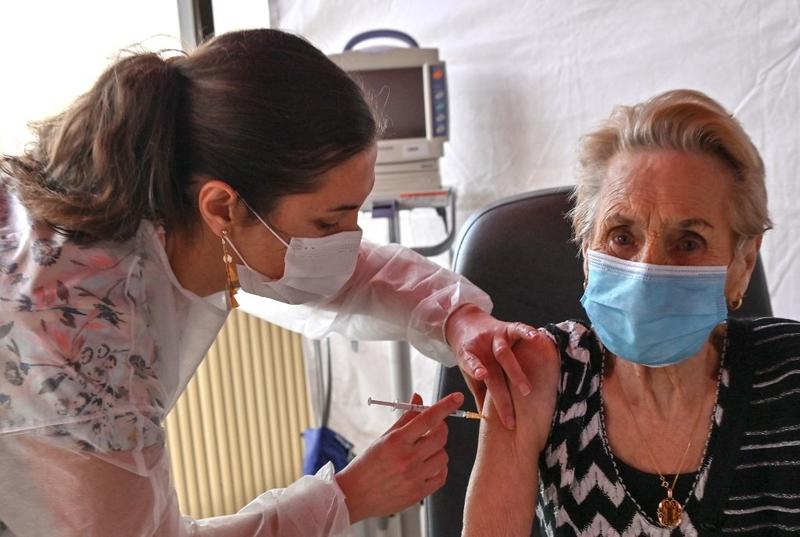 In this Feb 17, 2021 photo, a nurse administers the COVID-19 vaccine to an elderly patient at the Dunkirk hospital in France. (DENIS CHARLET / AFP)
In this Feb 17, 2021 photo, a nurse administers the COVID-19 vaccine to an elderly patient at the Dunkirk hospital in France. (DENIS CHARLET / AFP)
BRUSSELS - Women in European Union countries have been disproportionately affected by the coronavirus pandemic because they make up the vast majority of workers in health and other frontline jobs, an EU report said on Friday.
Women also filled more jobs than men which required personal contact and have been hit the hardest by curbs introduced to curb the spread of COVID-19
The pandemic has also brought a rise in domestic violence against women, the EU’s annual report on gender equality said.
“The COVID-19 pandemic has disproportionately affected women’s lives,” it read. “There is already ample evidence that the hard-won achievements of past years have been ‘rolled back’...progress on women’s rights is hard won but easily lost.”
Health risks to women had increased as had their workload and challenges to their work-life balance, said the report, which will be published on Friday and was seen by Reuters in advance. Women also took on more care responsibilities in lockdowns.
This has weighed on women’s safety, domestic violence rising in France, Lithuania, Ireland and Spain during Europe’s first lockdown in the spring of 2020, it said.
Women also filled more jobs than men which required personal contact and have been hit the hardest by restrictions introduced to curb the spread of the coronavirus.
ALSO READ: Women seen needing 60+ years to get equal with men in EU
“Women’s overrepresentation in lower paid sectors and occupations, such as hospitality, retail, or personal services, make them particularly vulnerable in the labour markets struck by the COVID-19 crisis,” it said.
Female employment in the EU dropped slightly more than male employment early on in the pandemic and women have since had more difficulties finding new jobs.
“In contrast, service sectors that were not as disrupted due to the nature of their activity such as information and communication, finance and insurance, primarily employing men, saw an increase in employment rates,” the report said.
It warned that the trends could lead to lower pensions for women, widening the gender pension gap and other inequalities “for decades to come”.



